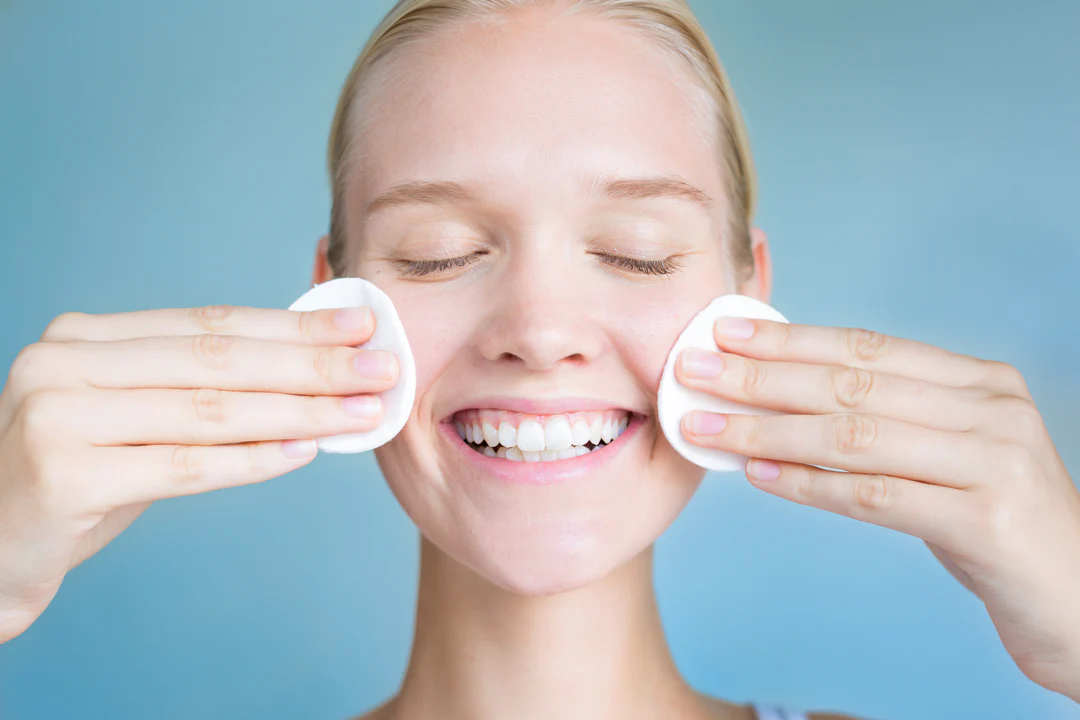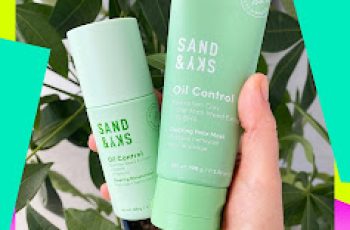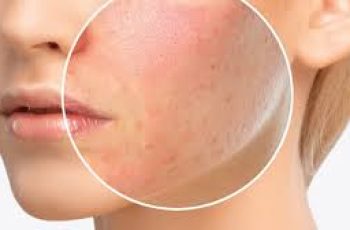
What Products Can You use with Retinol?
Whether you have only started using a skincare routine, or you are die hard super fan, retinol is one of the ingredients that everyone would value from a little more information about. That is exactly why today we are going to be focusing on what products can you use with retinol and with any luck, you’ll all be skin experts by the end of today’s blog post.
What can you use with retinol?
Retinol is a potent form of vitamin A and is praised for its anti-ageing benefits, as well as other properties to promote all-over skin health. Whether you are new to your retinol journey, or you have a skin type that is particularly sensitive, it’s best to avoid using exfoliating ingredients with retinol. By this I mean AHAs and BHAs, such as glycolic acid and salicylic acid as well as physical scrubs. This will help prevent the skin from becoming over stimulated.
The best skincare formulations to use with retinol are moisturisers and serums that are packed with hydrating ingredients, such as hyaluronic acid and niacinamide. As for other potent actives, such as the very popular vitamin C, you can still include this in your routine if you apply it during a different time of day compared to your retinol.
Finally, the most important product you should use with retinol is a daily SPF of 30 and above. Due to the increase in photosensitivity your skin will experience when using retinol, it is vital for you to ensure the skin barrier is protected from exposure to free radical damage, such as UV rays and pollution.
Can you use retinol and hyaluronic acid together?
Absolutely, in fact, many skincare experts suggest that using these two powerhouse ingredients together will ensure the common drying effects of retinol are combatted.
When using hyaluronic acid and retinol together I would suggest to first of all apply your retinol product followed by a serum that is enriched in hyaluronic acid. This will allow the retinol to penetrate the skin and work at boosting collagen production, reverse the signs of ageing, restore luminosity to the skin and reduce any breakouts or blemishes. By following this with hyaluronic acid you will find this clever humectant is able to draw water in from the atmosphere surrounding the face and locking it into the skin surface. This will keep the skin barrier healthy, hydrated and enable it to be protected from daily aggressors.
Can I mix niacinamide with retinol?
You can indeed, applying niacinamide to the skin before retinol is considered a highly effective way for those with oily and acne prone skin types to regulate the sebum production in the skin and keep blemishes at bay.
The added benefit of teaming niacinamide with retinol is the humectant benefits of niacinamide will help keep the skin moisturised and counteract any dryness, redness, itchiness, and flaking, all of which are a common side effect when using retinol.
Can vitamin C and retinol be used together?
Not really, as amazing as both of these ingredients are at benefiting the complexion, using them together is considered a big no-no when keeping your skin healthy. This is because the potency of each ingredient will overload the skin and cause irritation. Having said that, you can still use both vitamin C and retinol in your daily skincare regime. It is just a case of applying each powerhouse ingredient at the optimal time of day. Vitamin C is packed with antioxidants making it a great addition to your morning routine. With help from the antioxidants, you can keep the skin barrier at its healthiest state meaning it is able to ward of any free radicals your skin encounters. Such free radicals, such as pollution, harsh climates, central heating, and UV rays can cause a lot of skin damage which if left untreated can worsen.
This damage can vary from hyperpigmentation, dark spots, acne, and signs of premature ageing. Whilst vitamin C is able to protect the skin throughout the day to these free radicals, retinol can repair any damage they have previously caused. The main difference you’ll find it retinol should not be used during the day as any exposure to UV light results in the potent form of vitamin A becoming completely useless.
Can I use a salicylic acid cleanser with retinol? Yes and no, by this I mean you can indeed use a salicylic acid cleanser with retinol but keeping in mind to use it at the right time of day. Considering the potency of both these ingredients are very high, its best to ensure there is enough time left in between applications. This will not only keep the natural pH level of the skin balanced but will also ensure each ingredient is able to perform to the best of its abilities. For best results I would suggest using your salicylic acid cleanser during your morning routine followed by retinol in the evening routine. If you’re wanting to find out more about using salicylic acid cleanser with retinol, we actually have a fully detailed blog post over on The Beauty Insiders. Can you mix retinol with moisturiser? Yes, you can, as long as the moisturiser doesn’t contain and active ingredients that can cause irritation. The beauty of mixing retinol with a moisturiser is thanks to the thick formulation of your moisturiser you are applying a physical barrier over the skin. With this you are ensuring the skin and any product applied underneath is protected and able to work without disruption by any environmental aggressors, such as bad weather and climate. You will also ensure the skin is left feeling healthy, happy, and fully hydrated! I hope that today I have answered some of the questions you’ve had about what products you can use with retinol. Don’t forget if you have any skincare questions you can come and find us over on Instagram for daily skincare tips, new product launches and exclusive discounts. You can find me in the direct messages so do come and say hello!
DQH Can I use salicylic acid first and then vitamin C?
It’s easy to create a skincare routine, but knowing how to use it is another thing entirely. In most cases, if you’re not getting the desired skin results, it could be due to the layering of conflicting ingredients. So, is it possible that salicylic acid and vitamin C are such ingredients? Or are these active ingredients the duo that’s been missing from your skincare routine? If you want answers, stick around because today we are going to explain the benefits of salicylic acid and vitamin C and how they can be used in your daily life.
What are the benefits of salicylic acid for skin?
Salicylic acid is one of the most commonly used beta hydroxy acids and is favored by many people with oily, acne-prone skin. This acid is derived from willow bark, and unlike its water-soluble relatives (called alpha-hydroxy acids), salicylic acid is oil-soluble, which means it can penetrate deeper into the lower layers of the skin. Once it reaches the lower layers, it can help unclog pores of excess sebum, dirt, bacteria, debris, and impurities. This results in clearer skin tones and greater definition.
Not only does salicylic acid benefit the underlying layers, but the outer surface of the skin benefits as well. When applied to the skin, salicylic acid removes the buildup of dead skin cells. This is accomplished by breaking the bonds that hold dead cells to the surface. Over time, this can cause the complexion to look dull and prone to acne, blackheads, and other blemishes.
If you’d like to learn more about salicylic acid and how it can improve your skin, check out this dedicated blog post from a beauty insider.
What are the benefits of vitamin C for skin?
Vitamin C is considered one of the most powerful antioxidants, which means it is very effective at fighting free radicals and preventing them from causing further skin damage. Examples of free radicals include pollution, central heating, UV rays and harsh climate. They attack proteins, fats and cell membranes as soon as they come into contact with the skin, causing signs of premature aging such as fine lines and wrinkles as well as hyperpigmentation, flaky patches of skin and loss of elasticity.
Many people usually prefer to use vitamin C in their morning routine as this ingredient gives the complexion a radiant glow. You’ll also find that vitamin C can target areas of hyperpigmentation, plumping the skin and reducing the appearance of fine lines and wrinkles.
The thing about vitamin C is that there are a lot of outdated studies going back to the 1950s that describe vitamin C as an unstable skin component. Thanks to improvements in modern technology, this is no longer the case as all products now contain a stable form of vitamin C.
Visit The Beauty Insider to learn more about vitamin C. So please check out our blog post.
Can I use salicylic acid first and then vitamin C?
Yes, you absolutely can. In fact, it’s thought that using salicylic acid before using vitamin C ensures it penetrates faster and works faster.
This is an efficient way to utilize two power sources, and the reason has to do with pH. For example, the skin’s natural pH is about 4.7, making it slightly acidic. Salicylic acid and vitamin C are also both acidic, and you’ll find that vitamin C is absorbed quickly into the skin. Therefore, using salicylic acid beforehand can increase the acidity of the skin and allow vitamin C to penetrate into the skin faster.
While this is considered an effective way to combine two powerful ingredients, you need to be aware of your skin type and how it reacts to certain active ingredients. Even people with perfect, normal skin can experience skin sensitivity and irritation. Therefore, always consult a doctor or dermatologist before using any new products on your skin.
It’s also important to follow skin application rules. In this case, you need to use the product correctly to ensure you get the best results for your skin. If you’re not sure what I mean, the basic rule for skin is to start with the thinnest consistency and work your way up to the thickest consistency. This prevents a barrier from forming on the surface, preventing other active ingredients from penetrating the skin.
Can I use salicylic acid at night and vitamin C in the morning?
Yes, absolutely, this is considered the most effective way to get returns without any adverse side effects. This is because there is enough time between applications to ensure that the skin’s pH levels return to balance.
You’ll also find that Vitamin C is rich in antioxidants and is perfect for use in the morning to ensure your skin is protected and looking its healthiest. Due to the small size of salicylic acid molecules, it is an acid that is able to reach the deepest parts of the skin. While this is effective at keeping skin clear, it also increases the risk of irritation and photosensitivity. Therefore, many people prefer to use powerful BHAs in their evening routine without exposure to UV rays, pollution, or harsh weather.
Warning: If you avoid using sunscreen every day, none of these ingredients will do what your skin needs. The combination of chemical peels and powerful ingredients increases the risk of further damage to the skin’s surface. Use SPF 50 every day to keep your skin protected and your lipid barrier healthy, even on cloudy days, keeping your skin in top condition.


